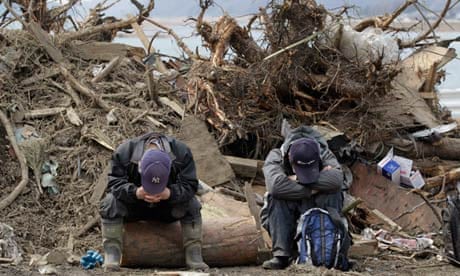An anonymous donor has sent gold ingots worth at least £160,000 to survivors of the March 2011 tsunami in north-east Japan, as the region prepares to mark the second anniversary of the disaster.
The gold bars began arriving in the town of Ishinomaki, where 3,000 people died and more than 40,000 buildings were destroyed, earlier this month. A group supporting the town's reconstruction and the head of the local fish market were among the recipients in an act of philanthropy one newspaper has called a "goodwill gold rush".
The gifts have reportedly lifted spirits amid complaints over the slow pace of the recovery effort almost two years after the coastline was struck by a magnitude 9.0 earthquake and tsunami that left almost 20,000 people dead or missing.
The first two ingots, worth a combined 10m yen (£70,000), arrived at the fish market, Japanese media said.
The parcel, sent from Nagano in northern Japan, did not contain the sender's name and was labelled "relief supplies". Experts later confirmed the contents were 24-carat gold.
"We are really grateful," the market's president, Kunio Suno, told the Kyodo news agency. "These will definitely speed up the recovery process. I hope the sender will contact us so we can say thank you properly."
The ingots will be cashed in and used to rebuild the market, which is currently operating inside tents.
Six more gold bars were later sent to a museum and tsunami recovery support network in the town.
Yoshie Kaneko, a member of the network, said the donation would be spent wisely. "We want the sender to come forward so that we can show her or him what we're doing to support this community," she told reporters.
The organisation said an anonymous donor, thought to be an elderly woman, had deposited 280,000 yen in cash into its bank accounts.
This is not the first time Japan has seen a wave of anonymous gift giving. In early 2011, unnamed donors sent school satchels, toys, food and cash to about 100 facilities for disadvantaged children around the country.
The wave of generosity was reportedly inspired by Tiger Mask, a popular manga series about a professional wrestler who anonymously donates his winnings to the orphanage in which he grew up.
